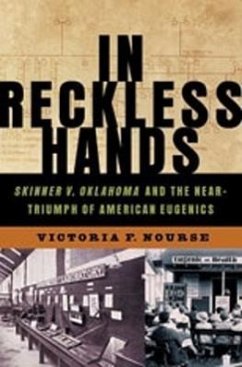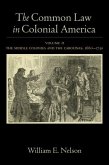In the 1920s and 1930s, thousands of men and women were sterilized at asylums and prisons across America. Believing that criminality and mental illness were inherited, state legislatures passed laws calling for the sterilization of "habitual criminals" and the "feebleminded." But in 1936, inmates at Oklahoma's McAlester prison refused to cooperate; a man named Jack Skinner was the first to come to trial. A colorful and heroic cast of characters--from the inmates themselves to their devoted, self-taught lawyer--would fight the case all the way to the U.S. Supreme Court. Only after Americans learned the extent of another large-scale eugenics project--in Nazi Germany--would the inmates triumph. Combining engrossing narrative with sharp legal analysis, Victoria F. Nourse explains the consequences of this landmark decision, still vital today--and reveals the stories of these forgotten men and women who fought for human dignity and the basic right to have a family.
Hinweis: Dieser Artikel kann nur an eine deutsche Lieferadresse ausgeliefert werden.
Hinweis: Dieser Artikel kann nur an eine deutsche Lieferadresse ausgeliefert werden.








